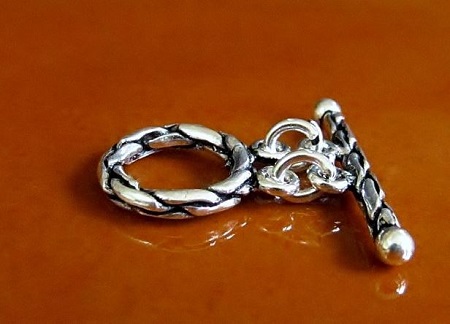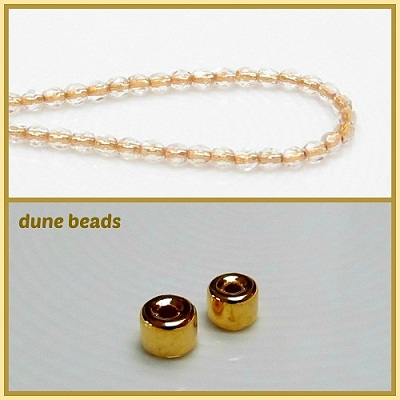Silver:
As can be seen from the previous articles on allergies and metals it is not so much the claimed metal that causes allergy problems, but what is in the 'hidden' alloy or hardener. The same applies to silver and gold.
Certainly what allergy and discoloration is concerned, the difference between sterling silver and fine silver is of the utmost interest. 925 sterling silver is for about 7.5% alloyed with copper. Pure copper will not cause any problems, but other metals are often added. Moreover, both copper and silver oxidize and a silver alloy should be cleaned regularly.
These problems do not occur with fine silver which contains 99.9% pure silver and therefore does not oxidize. For those who have problems with sterling silver jewelry, there is rhodium or palladium coated silver on the market. That protective layer, which is subject to wear, ensures that the silver does not come in contact with your skin.
PS: when the protective layer disappears, you could put a layer of transparent nail polish over it.

Gold:
The story repeats itself with gold. It is the alloy which creates problems. To change the color and/or make gold cheaper silver, copper and nickel are added.
The answer to the question of whether gold is allergy-free can be found in its karats. 24 karat yellow gold is composed of 99.9% gold and thus will not cause any problems. 10 KT to 22 KT gold are but gold alloys to which gold, silver and copper are added and so all depending on your sensitivity, they can cause skin reactions.
The so attractive rose gold contains up to 25% copper, which is not always nickel-free, and the sought-after white gold often also contains nickel in addition to palladium to create the right white golden shade.

Allergy-free precious metals - niobium and titanium:
Niobium is a shiny white metal with a bluish sheen. It is not alloyed with other metals to make jewelry and as a consequence it is corrosion resistant and nickel free. Additionally, the niobium color can be changed through an anodizing treatment, without transforming its composition, making it available in many attractive colors.
Just like niobium, titanium is not an alloy, but a nickel-free element that can be anodized, thus offering the same advantages.
PS: attention, the benefits will be lost when you buy silver or gold-plated versions.
Enjoy shopping @ https://dunebeads.com/en/metal-jewelry-findings ... and have a great day !



